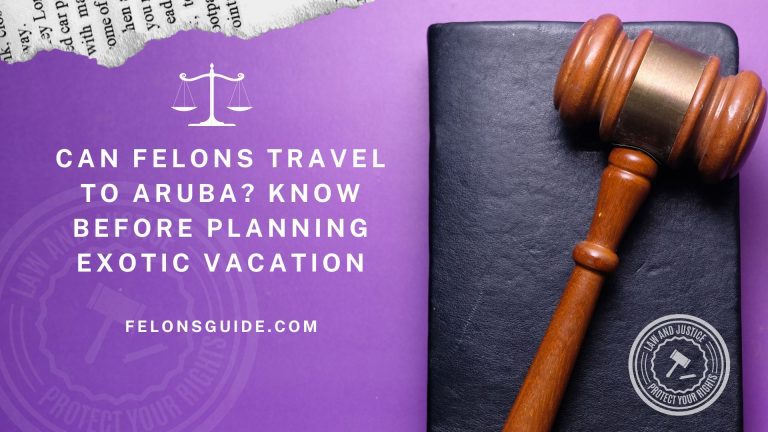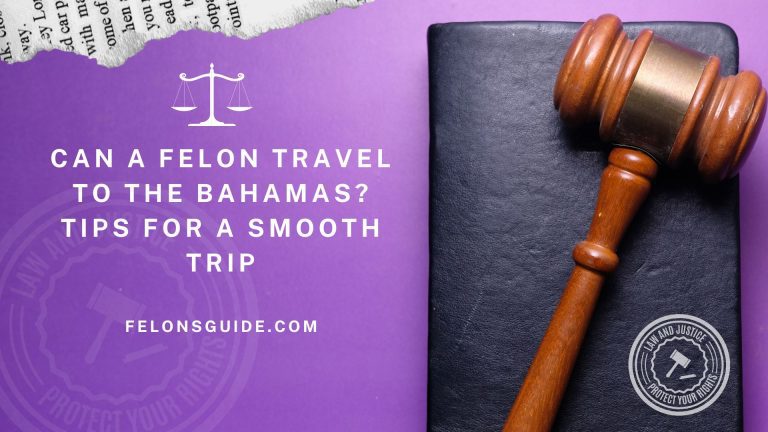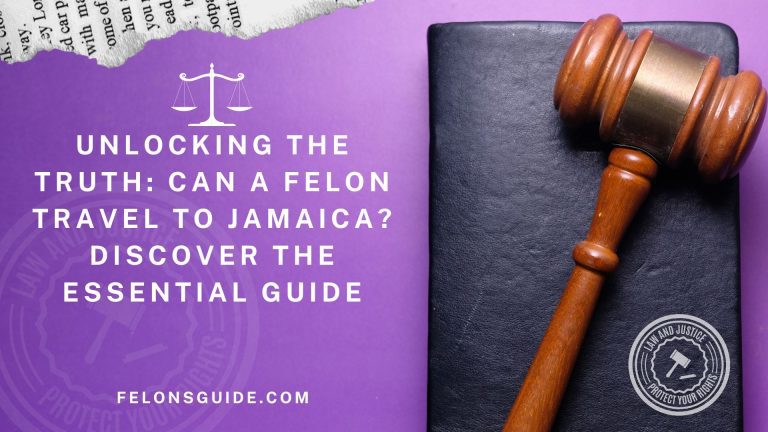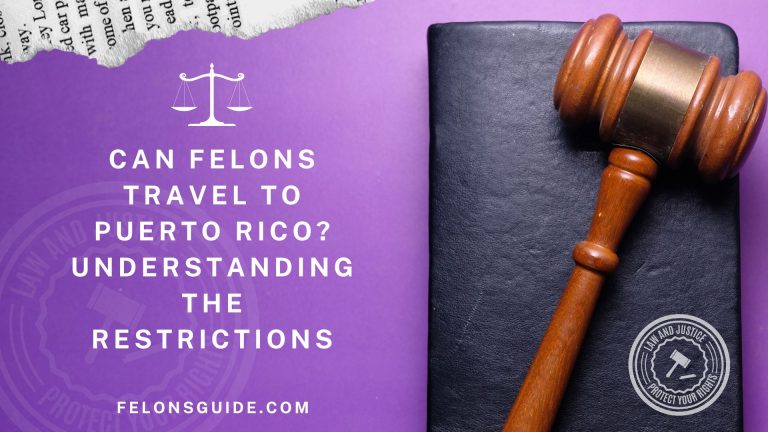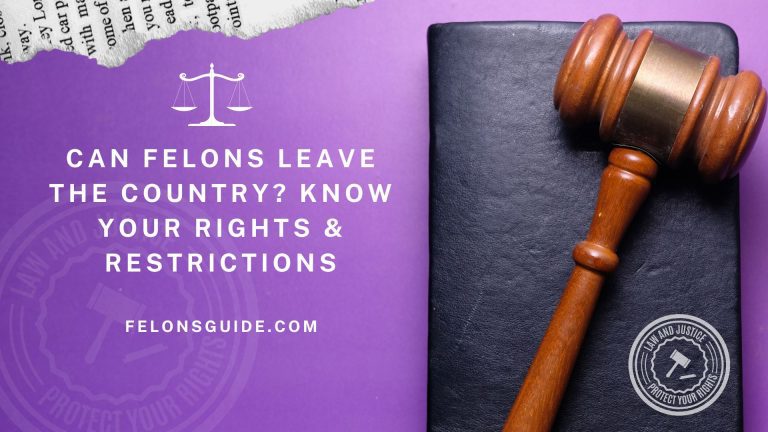Can Felons travel to Japan: What You Need to Know
Are you a felon planning to visit Japan for tourism, business, or personal reasons? You may wonder whether your criminal record will affect your chances of entering Japan. Japan has strict immigration laws that prohibit entry for certain individuals, including felons with specific convictions. However, not all felons are barred from entering Japan, and the process can be less complicated if you prepare in advance. This article will answer common questions and provide essential information about Japan’s immigration policy for felons.
Can Felons travel to Japan?
Yes, felons can travel to Japan, but it ultimately depends on the discretion of the immigration officer at the time of entry. It’s important to understand Japan’s immigration policy and requirements and to be honest and upfront about your criminal history. By preparing in advance and having all necessary documentation readily available, you can increase your chances of a smooth entry into Japan. However, it’s important to keep in mind that having a criminal record may limit your ability to obtain certain visas or work permits in Japan.
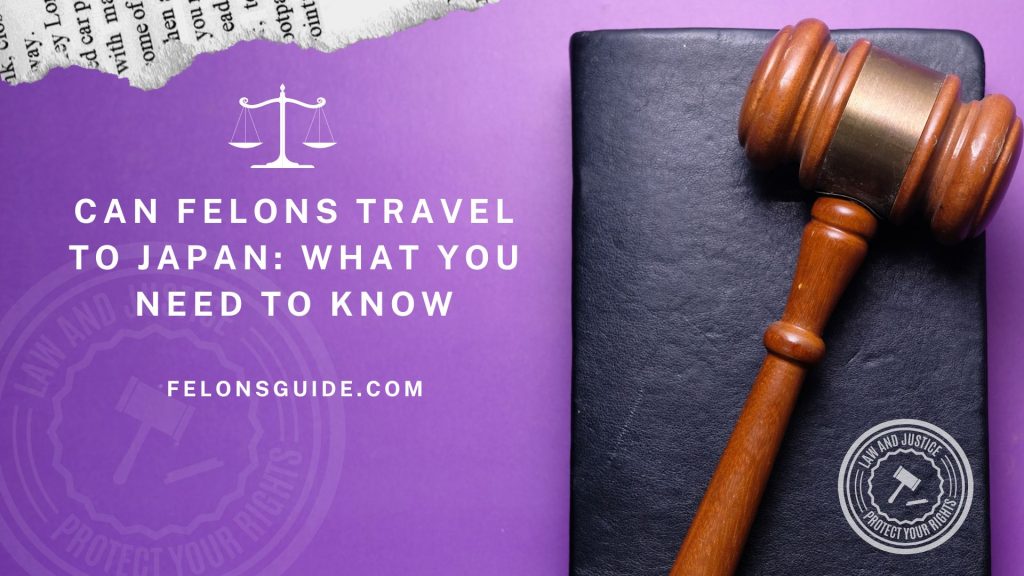
Japan’s Immigration Policy for Felons
Japan’s immigration policy for felons is straightforward: individuals with certain criminal convictions are not permitted to enter the country. The policy aims to maintain public safety and prevent individuals who may engage in criminal activities from entering Japan. The immigration officers at the port of entry have the authority to deny entry to any person who does not meet the entry requirements.
Types of Crimes That Can Prevent Entry to Japan
If you have been convicted of any of the following crimes, you may be prohibited from entering Japan:
- Drug-related crimes
- Firearms-related crimes
- Murder, assault, or other violent crimes
- Human trafficking
- Fraud or financial crimes
- Prostitution or other sex-related crimes
It’s essential to note that even if you have completed your sentence and probation, you may still be barred from entering Japan.
Exceptions to the Ban on Felons
Japan’s immigration law allows for some exceptions to the ban on felons. If you have a criminal record but can prove that your visit to Japan is for legitimate reasons, such as attending a family member’s funeral or conducting business, you may be granted entry. Additionally, the Japanese government can issue a “Special Permission to Enter Japan” to some individuals who would otherwise be barred from entry.
Applying for a Special Permission to Enter Japan
If you have a felony conviction and want to enter Japan, you may be eligible for a “Special Permission to Enter Japan.” To apply, you must submit a written application to the Japanese embassy or consulate in your home country. The application should include your personal information, the reason for your visit, and documentation that supports your case. The process can take several months, so it’s essential to apply well in advance of your planned travel dates.
How to Prepare for Traveling to Japan as a Felon
If you have a felony conviction and plan to travel to Japan, it’s crucial to prepare in advance to increase your chances of entry. Some tips for preparing include:
Gather all necessary documentation, including your passport, visa (if applicable), and any supporting documentation that explains the reason for your visit.
Contact the Japanese embassy or consulate in your home country to inquire about the application process for Special Permission to Enter Japan, if necessary.
Be honest and upfront with the Japanese immigration officers about your criminal history when asked. Lying or omitting information may result in denial of entry and future bans.
Have a clear and concise explanation for your visit to Japan and provide any supporting documentation, such as hotel reservations or a return ticket, to prove your intentions.
Consider hiring a lawyer who specializes in immigration law to assist you with the application process and ensure that all requirements are met.
What to Expect at the Japanese Immigration Counter
When you arrive in Japan, you will be required to go through the immigration counter. The immigration officer may ask you questions about your visit, including the reason for your trip, how long you plan to stay, and where you will be staying. They may also ask if you have any criminal history. Be honest and straightforward when answering their questions. If they suspect that you are lying or hiding information, they may deny your entry to Japan.
Also Read: Can Felons Travel to Aruba? Know Before Planning Exotic Vacation
Tips for a Smooth Entry into Japan
To ensure a smooth entry into Japan, consider the following tips:
- Arrive at the airport with plenty of time before your flight.
- Have all necessary documentation readily available, including your passport, visa (if applicable), and any supporting documentation.
- Dress appropriately and maintain a professional demeanor when interacting with immigration officers.
- Be polite and respectful when answering questions and following instructions.
- If you encounter any issues, remain calm and patient. Do not argue with the immigration officers, as it may escalate the situation.
What Happens if You’re Denied Entry to Japan
If you’re denied entry to Japan, you may be detained by immigration officers and placed on the next available flight back to your home country. You may also be banned from entering Japan in the future. If you believe that your denial was unjust, you may appeal the decision through the Japanese embassy or consulate in your home country.
Traveling to Japan After a Felony Conviction
If you have a felony conviction and have been barred from entering Japan, it’s still possible to travel to Japan in the future. The length of the ban may vary depending on the severity of the crime, but it’s typically between five and ten years. After the ban has expired, you may apply for Special Permission to Enter Japan or try entering Japan without one, depending on the circumstances.
Can You Work or Study in Japan as a Felon?
If you have a felony conviction, it may be challenging to obtain a work or study visa in Japan. Japan’s immigration policy is strict, and they prioritize public safety above all else. However, if you have a specialized skill set that is in high demand in Japan, you may be able to obtain a work visa. Additionally, if you have completed your sentence and probation, your chances of obtaining a work or study visa may increase.
Conclusion
Japan’s immigration policy for felons is strict, but it’s not impossible to enter Japan with a criminal record. If you have a felony conviction and plan to travel to Japan, it’s crucial to prepare in advance, be honest and upfront with immigration officers, and have all necessary documentation readily available. If you’re denied entry, remain calm and patient, and follow the appropriate procedures to appeal the decision.
FAQs
Can I enter Japan with a DUI conviction?
It depends on the circumstances surrounding your DUI conviction. If it’s your first offense and there were no injuries or fatalities involved, you may still be able to enter Japan. However, if you have multiple DUI convictions or were involved in a serious accident, you may be denied entry.
How long does it take to get special permission to enter Japan?
The application process for Special Permission to Enter Japan can take several months, so it’s essential to apply well in advance of your planned travel dates.
Will my criminal record be checked when applying for a Japanese visa?
Yes, your criminal record may be checked when applying for a Japanese visa. It’s important to disclose any criminal history and provide any necessary documentation to support your application.
Can I travel to Japan with a misdemeanor conviction?
It’s possible to travel to Japan with a misdemeanor conviction, but it’s ultimately up to the discretion of the immigration officer at the time of entry. It’s important to prepare in advance, have all necessary documentation readily available, and be honest and upfront with the immigration officer about your criminal history.
Can I apply for a work visa in Japan with a criminal record?
It may be challenging to obtain a work visa in Japan with a criminal record, but it’s not impossible. If you have a specialized skill set that is in high demand in Japan, you may be able to obtain a work visa. It’s important to disclose your criminal history when applying for a work visa and provide any necessary documentation to support your application.
